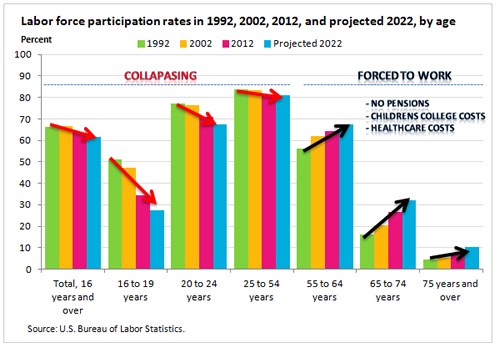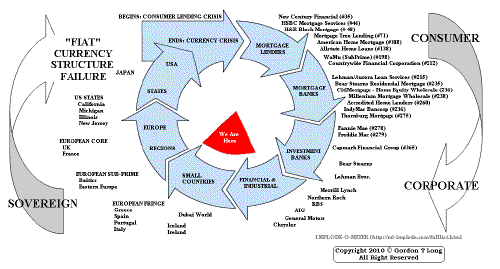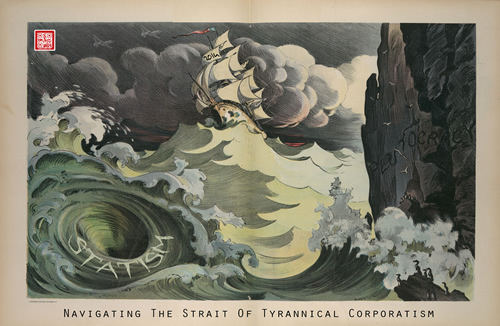|
JOHN RUBINO'SLATEST BOOK |
|||||||||||||||||||||||||||||||||||||||||||||||||||||||||||||||||||||||||||||||||||||||||||||||||||||||||||||||||||||||||||||||||||||||||||||||||||||||||||||||||||||||||||||||||||||||||||||||||||||||||
"Currency Wars "
|
�
"SULTANS OF SWAP" archives open ACT II ACT III ALSO Sultans of Swap: Fearing the Gearing! Sultans of Swap: BP Potentially More Devistating than Lehman! |
�
"EURO EXPERIMENT"
archives open EURO EXPERIMENT :� ECB's LTRO Won't Stop Collateral Contagion!
EURO EXPERIMENT: |
�
"INNOVATION"
archives open |
�
"PRESERVE & PROTE CT"
archives open |
�

�
�
�
Tue. Jan. 21st, 2014
MACRO WATCH Q1 2014
NOW AVAILABLE - SUBSCRIBE
�
�
�
| � | � | � | � | � |
| JANUARY | ||||||
| S | M | T | W | T | F | S |
| � | � | � | 1 | 2 | 3 | 4 |
| 5 | 6 | 7 | 8 | 9 | 10 | 11 |
| 12 | 13 | 14 | 15 | 16 | 17 | 18 |
| 19 | 20 | 21 | 22 | 23 | 24 | 25 |
| 26 | 27 | 28 | 29 | 30 | 31 | � |
| �� Complete Archives � |
||||||
KEY TO TIPPING POINTS |
| 1 - Risk Reversal |
| 2 - Japan Debt Deflation Spiral |
| 3- Bond Bubble |
| 4- EU Banking Crisis |
| 5- Sovereign Debt Crisis |
| 6 - China Hard Landing |
| � |
| 7 - Chronic Unemployment |
| 8 - Geo-Political Event |
| 9 - Global Governance Failure |
| 10 - Chronic Global Fiscal ImBalances |
| 11 - Shrinking Revenue Growth Rate |
| 12 - Iran Nuclear Threat |
| 13 - Growing Social Unrest |
| 14 - US Banking Crisis II |
| 15 - Residential Real Estate - Phase II |
| 16 - Commercial Real Estate |
| 17 - Credit Contraction II |
| 18- State & Local Government |
| 19 - US Stock Market Valuations |
| � |
| 20 - Slowing Retail & Consumer Sales |
| 21 - China - Japan Regional Conflict |
| 22 - Public Sentiment & Confidence |
| 23 - US Reserve Currency |
| 24 - Central & Eastern Europe |
| 25 - Oil Price Pressures | 26 - Rising Inflation Pressures & Interest Pressures |
| 27 - Food Price Pressures |
| 28 - Global Output Gap |
| 29 - Corruption |
| 30 - Pension - Entitlement Crisis |
| � |
| 31 - Corporate Bankruptcies |
| 32- Finance & Insurance Balance Sheet Write-Offs |
| 33 - Resource Shortage |
| 34 - US Reserve Currency |
| 35- Government Backstop Insurance |
| 36 - US Dollar Weakness |
| 37 - Cyber Attack or Complexity Failure |
| 38 - Terrorist Event |
| 39 - Financial Crisis Programs Expiration |
| 40 - Natural Physical Disaster |
| 41 - Pandemic / Epidemic |
�
Reading the right books?
No Time?
![]()
We have analyzed & included
these in our latest research papers!
![]()
Book Review- Five Thumbs Up
for Steve Greenhut's
Plunder!
�
 TODAY'S TIPPING POINTS
TODAY'S TIPPING POINTS 
| THIS WEEKS TIPPING POINTS | MACRO NEWS | MARKET | 2013 THEMES |
�

�
"BEST OF THE WEEK " |
Posting Date |
Labels & Tags | TIPPING POINT or 2013 THESIS THEME |
HOTTEST TIPPING POINTS |
� | � | Theme Groupings |
| � | � | � | |
We post throughout the day as we do our Investment Research for: LONGWave - UnderTheLens - Macro |
� | � | � |
| THESIS & THEMES | � | � | � |
|
Totalitarian Collectivism "This difference would likely have the long-term effect of fewer people relying on independent web sites or news and information and make it difficult for them to compete with the big guys." -�Chancellor Williams When Net Neutrality Becomes Programmed Censorship 01-21-14 BATR.org The worst fears of all free speech proponents are upon us. The Verizon suit against the Federal Communications Commission, appellate decision sets the stage for a Supreme Court review. The Wall Street Journal portrays the ruling in financial terms: "A federal court has tossed out the FCC's "open internet" rules, and now internet service providers are free to charge companies like Google and Netflix higher fees to deliver content faster." In essence, this is the corporate spin that the decision is about the future cost for being connected.
What the Journal is not telling you is that this "uncharted territory" is easy to project. If ISP’s will be able to charge varied rates or decide to vary internet speed, it is a very short step towards selectively discriminate against sites based upon content. Do not get lulled into thinking that constitutional protective political speech is guaranteed. Once again, the world according to the communication giants paint a very different interpretation as the article, Verizon called hypocritical for equating net neutrality to censorship illustrates.
The response from advocates of the Net Neutrality standard, that is about to vanish, sums up correctly.
� Prepare for the worst. The video, Prepare To Be Robbed. Net Neutrality Is Dead!, which includes frank language and expletives, provides details that place the use of internet access into question coming out of this appellate decision.
Analyze the implications logically. It is one thing to charge a for profit service like Netflix a higher fee to transverse the electronic bandwidth of a communication network. Selling a membership to an end user is the source of their cash flow. However, most activist political sites usually provide internet users free access to their particular viewpoint and source links. Your internet service provider controls the pipeline that feeds your devices and data connection. No matter which company you pay for this service, you are dependent upon this union. A free WiFi link may well become a memory. Beaming a satellite signal, mostly is an alternative, when DSL, cable or other broadband is not available. No matter what method is used to surf the net, this decision clearly implies that internet access is now a privilege, at the effective discretion, if not mercy; of a provider that allow an account for service. Next, consider the implication that search engines will use this decision to re-work their algorithms lowering their spider bots selection of sites that challenge the "PC" culture. Restrictive categorization used for years by Google, Yahoo and Bing can use this decision as cover to purge dissenting sites even more from their result rankings. It is common knowledge that YouTube censors and targets certain uploads. One particular subject that experiences technical glitches is Fukushima. The video You Tube Censoring Truther Channels explains the drill. Add to the frustration are the ads, especially the ones with no skip option and imagine future requirements for uploading approval. What is next, a paid subscription to use and upload to the service?
Yes, the Ending Net Neutrality Signals A Digital Paradigm Shift. It also means that they could unfairly push sites like (add the name of your favorite sites) out of the way of users if they (the "PC" protectors) didn’t like them, acting as effective censors.
Stephen Lendman writes in Digital Democracy vs. Corporate Dominance: R.I.P. Internet Neutrality?
Ready yourself for the inevitable results! According to Michael Hiltzik, Net neutrality is dead. Bow to Comcast and Verizon, your overlords.
In a digital environment, access to an internet that provides uncensored content at the lowest costs is a direct threat to the corporate economy. Innovation and creative cutting-edge services are clearly marked as competing challenges to the Amazon jungle of merchandising. The big will just get bigger. Then the unavoidable effects from the "all the news fit to report" mass medium, intensifies their suppression of honest investigative journalism. Filtering out the alternative and truth media is the prime objective of this ruling. Eliminating political dissent from the internet is the ultimate implication. What would the net be like without access to the Drudge Report? When the cable or satellite services bundle their programming into a "take it or leave it" format, the choices for the consumer becomes a major financial burden just to watch the few channels that have interest. Applying this pattern to the internet will cause even greater resentment. Just look at the disaster from the Yahoo retooling. That Ms. "wicked witch" MM have pushed up the stock price, but ask any yahoo group member what they think of the new format. This is a classic example of how to turn off users and ruin your product. Subscription services are playing with fire. With the collapse of the main street economy, the added fees to access content that is mediocre at best, is the actual fallout. Like the dinosaur TV networks, the corporatist sites risk total rejection from internet visitors. Totalitarian culturalists are rejoicing with this latest damper on free speech. News by way of government press releases is pure propaganda. How did this happen? For a short explanation history, Nilay Patel writes in The Wrong Words: How The FCC Lost Neutrality And Could Kill The Internet.Credo Action believes that "FCC Chairman Tom Wheeler can undo the Bush-era decision to deregulate broadband Internet providers and allow them to operate outside of the legal framework that has traditionally applied to companies that offer two-way communication services." Such optimism seems naive in light of the real controllers of policy, much the same, for the Supreme Court coming to the rescue. Mark this court decision as the strategic destruction of the internet as a beacon of unfeigned free expression of information and open political speech. The programmers will be working overtime to set up layers of tasks, restrictions and huddlers to jump over. If you think Facebook censorship is bad, get ready for a purely governmental approved net along the Chinese model. SARTRE – January 20, 2014 � |
01-21-14 | THESIS | MOST CRITICAL TIPPING POINT ARTICLES THIS WEEK - January 18th - January 25th | � | � | � |
| RISK REVERSAL | � | � | 1 |
| JAPAN - DEBT DEFLATION | � | � | 2 |
| BOND BUBBLE | � | � | 3 |
EU BANKING CRISIS |
� | � | 4 |
| SOVEREIGN DEBT CRISIS [Euope Crisis Tracker] | � | � | 5 |
| CHINA BUBBLE | � | � | 6 |
| TO TOP | |||
| MACRO News Items of Importance - This Week | |||
GLOBAL MACRO REPORTS & ANALYSIS |
� | � | � |
| 01-20-14 | � | � | |
| SHADOW BANKING - REITS & CMBS Growth
Competition for banking business lurks in the shadows 01-17-14 Tracy Alloway in New York Tighter rules for commercial lenders drive growth in shadow banking, writes Tracy Alloway
Cocktails, cabanas and credit quality were some of the talking points at a commercial real estate conference held this week in Miami, as attendees swapped their overcoats for beachwear and sat down to discuss the rebounding market. The annual summit has for years been a calendar highlight for the Wall Street bankers who originate commercial real estate loans and then bundle them into bonds known as commercial mortgage-backed securities (CMBS). This year’s event was held at the Fontainebleau, a more upscale – and, crucially, larger – venue that offered attendees an on-site nightclub and a spa with “Swarovski crystal pedicures” on its menu of services. The sprawling new location is symbolic of the broader recovery in some parts of the securitisation market. Sales of CMBS totalled $102bn last year, the highest since the financial crisis, and issuance is expected to increase further in 2014. It is also indicative of another development: in addition to accommodating the hundreds of bankers who have historically frequented the conference, this year’s Miami gathering played host to an expanded selection of non-bank lenders. Most notable were the large numbers of representatives from non-traded real estate investment trusts (Reits) – tax-friendly investment vehicles that invest in property and also originate new loans. While that is a deeply uninteresting description of their activities, these non-traded Reits are often included under the far more intriguing label of “shadow banks”. There has been an increasing amount of talk recently about the growth of “shadow banking” – most of it supremely unflattering. Shadow banks, we are often told, are the unregulated institutions that lurk in the dark corners of the financial system – away from the supervised activities of run-of-the-mill commercial banks. The frequent implication is that these indistinct entities are growing as new financial regulation begins to have an impact on the activities of traditional banks, and that this growth poses a threat to the safety of the overall financial system. Yet, just like banks, shadow lenders serve a purpose – they create the credit and securities that are demanded by investors and, hopefully, supported by the needs of the real economy. The growth of shadow lenders is therefore demonstrative of a truism of finance: squeeze one segment of the system and the activity you are attempting to control is likely to manifest itself elsewhere. If banks retreat from the business of manufacturing in-demand assets such as CMBS or originating loans, you invite growth of non-bank lenders which do the same thing in a cheaper and more efficient way. Reits enjoy lighter regulation, benefit from tax efficiencies and possess increasingly deep pockets that allow them to make aggressive loans to property developers. Their role in the market is growing – as is that of hedge funds and “business development companies” that provide capital to middle-market companies, and a whole host of other speciality financiers. At the Miami conference, upstart non-bank lenders carried pitch books to sell their businesses to yield-hungry investors, raising expectations that more than 10 new firms will this year begin contributing loans to CMBS deals, according to Kroll Bond Ratings. While it’s fair to worry about the rise of shadow lenders themselves, it seems there is perhaps also an under-appreciated danger: the possibility that non-bank lenders will encourage riskier behaviour at larger banks that now find themselves compelled to try to compete with the shadows. Competition is increasing and the poolside bonhomie that pervaded the Miami conference may not last should bankers see their business (or bonuses) eroded by their shadow lender counterparts. Already there is talk of slippage in underwriting standards across the board and the return of certain worrying pre-crisis lending practices as competition heats up. Next week, it’s off to another, even larger, conference – an annual securitisation industry shindig in Las Vegas. Here, too, the event has been moved to more luxurious accommodation than has been booked in prior years – the swanky Cosmopolitan Hotel on the glittering Las Vegas Strip. Expect the mood there to be as buoyant as in Miami, and the attendees just as varied. What will be interesting to see is how regular conference-going bankers react to the proliferation of party-crashers from the world of shadow lending. After all, there are only so many free cocktails to go around. |
01-20-14 | GLOBAL GEO-POLITICAL GROUP-INTERNATIONAL BANKING � SHADOW BANKING |
GLOBAL MACRO |
US ECONOMIC REPORTS & ANALYSIS |
� | � | � |
| CENTRAL BANKING MONETARY POLICIES, ACTIONS & ACTIVITIES | � | � | � |
 |
01-20-14 | � | � |
| � | � | � | |
| Market | |||
| TECHNICALS & MARKET | � |
� | � |
| COMMODITY CORNER - HARD ASSETS | � | PORTFOLIO | � |
| COMMODITY CORNER - AGRI-COMPLEX | � | PORTFOLIO | � |
| SECURITY-SURVEILANCE COMPLEX | � | PORTFOLIO | � |
| � | � | � | |
| THESIS Themes | |||
| 2014 - GLOBALIZATION TRAP | � | � | � |
2013 - STATISM |
� | � | � |
2012 - FINANCIAL REPRESSION |
� | � | � |
2011 - BEGGAR-THY-NEIGHBOR -- CURRENCY WARS |
� | � | � |
2010 - EXTEND & PRETEND |
� | � | � |
| THEMES | |||
| FLOWS -FRIDAY FLOWS | � | � | � |
| NATURE OF WORK -PRODUCTIVITY PARADOX | � | � | � |
| GLOBAL FINANCIAL IMBALANCE - FRAGILITY & INSTABILITY | � | � | � |
| CENTRAL PLANINNG -SHIFTING ECONOMIC POWER | � | � | � |
| SECURITY-SURVEILLANCE COMPLEX -STATISM | � | � | � |
| STANDARD OF LIVING -GLOBAL RE-ALIGNMENT | � | � | � |
| CORPORATOCRACY -CRONY CAPITALSIM | � | � | � |
CORRUPTION & MALFEASANCE -MORAL DECAY - DESPERATION, SHORTAGES.. |
� | � | � |
| SOCIAL UNREST -INEQUALITY & BROKEN SOCIAL CONTRACT | � | � | � |
| CATALYSTS -FEAR & GREED | � | � | � |
| ECHO BOOM - PERIPHERAL PROBLEM | � | � | � |
| GENERAL INTEREST | � |
� | � |
| TO TOP | |||
|
|||
Tipping Points Life Cycle - Explained
Click on image to enlarge
 ���
���
TO TOP
�
�
�
�
�� TO TOP
�
�
�




























